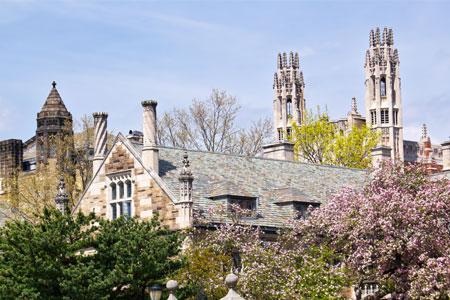Do T14 Law Schools Produce Better Associates?
Published: May 16, 2014

Not necessarily, according to associates who took Vault’s annual law firm associate survey. Vault administered the survey earlier this year, and we are working hard to analyze responses from thousands of associates at over 120 firms to generate our 2015 rankings, to be released next month. In the meantime, here’s a sneak peek of some of the gems we have collected from lawyers around the country about what it’s really like to work in BigLaw.
In the first installment of our “Survey Outtakes” series, let’s take a look at one of many themes that emerged in this year’s survey responses. I’ll call this one “Disdain for Law School Snobbery,” or, to put it slightly more gently, “Frustration with Law School Elitism.” We asked associates to rate the competitiveness of their firm’s hiring process on a scale of 1 to 10 (scores that will generate Vault’s rankings for Selectivity), and then prompted them as follows: “Please comment on your firm’s hiring process, the type of candidate you believe your firm is looking for, and important factors you believe your firm considers in its hiring decisions (law school attended, grades, journal experience, clerkship, prior work experience, personality, diversity, etc.).” Many associates commented that hiring has gotten more competitive; that firms look for top grades from Top 14 or Top 10 schools; and that after resume-vetting, firms value personality and a cultural “fit” above all else.
That’s all to be expected, but another more colorful theme that emerged was the feeling that post-recession, increased focus on top schools is actually hurting the quality of candidates that firms are bringing in. It’s no secret that as summer class sizes remain relatively flat, firms are cutting back on the number of schools they visit for on-campus interviews. Students who attend a non-T14 school (or a local feeder school) are unlikely to land a BigLaw summer gig unless they are in the top 10 or 15 percent of their class.
How do associates feel about this trend? After all, they are the ones who have to supervise summer and incoming associates on work assignments, take them out to mentoring lunches and socialize with them at firm events. I’ll let the quotes speak for themselves:
- “I think the firm has unrealistic expectations with regard to recruitment. They focus too much on Ivy League credentials, especially because the Harvard-type students are not historically seeking to work for us (and only interview with us as a safety measure). They should spend less time looking at middling Ivy Leaguers and more time focused on the top 5% at non-T14 schools.”
- “In recent years, our firm seems to only care about pedigree (i.e., which law school a candidate attends) to the GREAT DETRIMENT of the quality of our associates.”
- “We now have what seems like a top-10 only summer class. Coming from a top 25 law school, I disagree with the policy, because we end up getting the bottom half of students from top 10 schools rather than the top 5% of students from top 25 schools.”
- “I am often bewildered by the lack of social grace exhibited by some of my colleagues. The focus on grades seems to result in the firm overlooking the importance of interpersonal skills, business experience, etc. Further, the firm’s focus on top tier schools is antiquated.”
- “Our firm would be better served broadening the law schools they look at rather than getting the leftovers from NYC law schools and Cornell graduates.”
- “Firm has become a place where if you didn't go to a top 5 school they probably won’t hire you unless there is a special circumstance. Firm is overly interested in grades but unfortunately doesn't focus enough on personality as evidenced by the many socially awkward associates working here.”
And my personal favorite (though this one is really knocking grade snobbery rather than school snobbery):
- “The firm prioritizes grades over almost all else and has ended up with a bunch self-entitled, egotistical junior associates who don't know how to work as a result.”
Obviously this was not the sentiment of attorneys at all firms. Many Vault 100 firms have rarely ventured outside of T14 schools in their hiring; associates at those firms are accustomed to (and mostly comfortable with) this highly selective approach. It’s the firms that have historically cast a wider net and that have recently scaled back on their on-campus efforts, or firms that have changed course to more aggressively recruit from schools like Harvard, Columbia and Penn, that are drawing out the ire of their associates—many of them mid-levels who have been around long enough to see the firm’s practices evolve, and in this case, not necessarily for the better.
Look out for the release of Vault’s 2015 rankings next month!
Follow me on Twitter @VaultLaw
